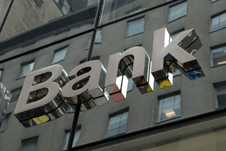Safe Deposit Box / Safety Deposit Boxes
If you think there is not much to using a safe deposit box beyond putting keys in locks, you are in for a surprise. The safe deposit box service may be tucked down in the basement or far corner of your bank, but in its own quiet way it is among the bank's most important offerings-- and among the most misunderstood.
While millions of Americans rent safe deposit boxes, few pay attention to questions such as who could or should have access to a safe deposit box (especially in an emergency) and how the contents of the safe deposit box are protected. About the only time people ever consider these issues is when there is a problem, and then it may be too late to prevent a loss.
To help you decide whether to use a safe deposit box, and how to use one wisely, read the following questions and answers. To keep things simple, our references to "banks" are intended to apply broadly to banks, savings institutions and credit unions.
What Should Go Into a Safe Deposit Box -- And What Should Not
Why should I rent a safe deposit box?
Safe deposit boxes are a convenient place to store important items that would be difficult or impossible to replace. A safe deposit box also offers privacy (only you know what is inside) and security. Although many people like to keep valuables close by in a closet, safe or file cabinet at home or in the office, these places probably are not as resistant to fire, water or theft. Also, some insurance companies charge lower insurance premiums on valuables kept in a bank's safe deposit box instead of at home.
What items should go into a safe deposit box?
Safe deposit boxes are a good place to keep any personal items that would cause you to say, "If I lose this, I am in deep trouble." Important papers to consider putting into your safe deposit box: originals of your insurance policies; family records such as birth, marriage and death certificates; original deeds, titles, mortgages, leases and other contracts; stocks, bonds and certificates of deposit (CDs). Other valuables worthy of a spot in your safe deposit box include special jewels, medals, rare stamps and other collectibles, negatives for irreplaceable photos, and videos or pictures of your home's contents for insurance purposes (in case of theft or damage).
OK, what should NOT go in a safe deposit box?
Safe deposit boxes are probably not a good place for anything you might need in an emergency, in case your bank is closed for the night, the weekend or a holiday. Possible examples: originals of a "power of attorney" (your written authorization for another person to transact business on your behalf), passports (in case of an emergency trip), medical-care directives if you become ill and incapacitated, and funeral or burial instructions you make. Consider giving the originals to your attorney, and making copies to go in your safe deposit box or to give a close friend or relative.
If I have a will, should it go in my safe deposit box?
Whether your will should be at the bank or elsewhere, such as with your attorney, depends on what your State law says about who has access to your safe deposit box when you die. Ideally, the person you name to oversee your financial matters after you die (your "executor" or "personal representative") should have early access to your original will (copies are not valid). Some States make it relatively easy for co-renters, family members or the executor to remove the will and certain other documents (such as life insurance policies and burial instructions) from a deceased person's safe deposit box. In those States, it may be a good idea to leave your will in the safe deposit box. But other States may require a court order or another official action to remove the will, which can take time and money. That is why you should check with a bank official (or your lawyer) to find out what is required under State law and your bank's own policies in the event of your death.
Safe Deposit Box Access By Others
Can I arrange for someone to access my safe deposit box in an emergency?
Yes. You can jointly rent your safe deposit box with a spouse, child or other person who would have unrestricted access to the safe depoosit box. (Warning: In some states your co-renter may face delays in accessing the safe deposit box if you die. Also, merely giving someone else a key will not be enough to grant access. He or she also must sign the bank's rental contract as a joint-renter.) An alternative is to appoint a "deputy" or "agent" (NOT a power of attorney) who will have access to your safe deposit box. A deputy/agent and a general power of attorney are similar in that you may grant or revoke the authority at any time, and the appointment ends if you become incompetent or die. The main difference is that a deputy or agent is appointed in the presence of the safe deposit box renters and a bank employee, which gives the bank greater assurance about the validity of the authorization. Many people are surprised to find that a power of attorney does not allow access to a safe deposit box. The bank has no way of knowing if the power of attorney is still in effect or if the renter was competent when the power of attorney was signed.
Can law enforcement authorities access my safe deposit box without my knowledge or permission?
If a local, state or federal law enforcement agency persuades the appropriate court that there is "reasonable cause" to suspect you're hiding something illegal in your safe deposit box (guns, drugs, explosives, stolen cash or money obtained illegally), it can obtain a court order, force the safe deposit box open and seize the contents. What about non-criminal matters, such as a dispute with the Internal Revenue Service (IRS), a company, or other people over money they say you owe? The IRS can "freeze" your assets (effectively placing a hold on your bank accounts and safe deposit box) until the dispute is resolved. Private parties also can freeze your assets but doing so involves going before a judge and proving that there is a legitimate dispute over a debt.
Can a safe deposit box be declared "abandoned" and the contents turned over to the government?
Yes, but only if you do not pay your rental fee for a number of years (as determined by State law) and after attempts to notify and locate you prove unsuccessful. In that case, your safe deposit box will be reported as abandoned and the contents will be turned over to the State's unclaimed property office. Often this happens because the renter dies and the heirs have no knowledge of the safe deposit box or its contents. The good news is that even if the State has sold your unclaimed property, you or your heirs still have the right to claim its value. To contact a State's unclaimed property office (sometimes part of the treasurer's office), check the State government section in your phone book. You may also contact the National Association of Unclaimed Property Administrators.
What happens to my safe deposit box if my bank fails?
When an insured bank or thrift closes, the Federal Deposit Insurance Corporation (FDIC) usually arranges for another institution to take it over, including branches where you might have a safe deposit box. In those situations, you should be able to conduct business as usual. If the FDIC cannot find a buyer for your bank, it arranges for you to remove the contents of your safe deposit box so you can obtain a box at another institution, if you wish. This is done within a few days after the bank fails.
How Safe Is a Safe Deposit Box?
Are safe deposit boxes protected from fire, flood or other disasters?
The companies that manufacture safe deposit boxes and the vaults that house the safe deposit boxes make them highly "resistant" to fire, flood, heat, earthquakes, hurricanes, explosions or other disastrous conditions. However, the key word here is "resistant." There is no 100 percent guarantee against damage, and substantial losses sometimes occur.
Are there extra precautions I can take to minimize damage?
Yes. Prevent water damage by sealing items in airtight, zip-lock bags or Tupperware-style containers. Also, put your name on each item, keep a list of the box's contents, make copies of important documents and even take photos of your most prized items left in the safe deposit box. That way, if a disaster occurs, your chances of successfully identifying, claiming or recovering an item would be increased.
Does FDIC insurance cover the contents of safe deposit boxes if they are damaged or stolen?
No. By law, the FDIC only insures deposits in deposit accounts at insured institutions. Although you may be putting valuables, including cash and checks, into an area of the bank that has the word deposit in its name, these are not deposits under the insurance laws that the bank can use, for example, to make loans to other customers. A safe deposit box is strictly a storage space provided by the bank.
Does anyone insure my safe deposit box against damage or theft?
Unless your bank is found to be negligent in the way it handled or protected your safe deposit box, do not expect the bank or its private insurance to reimburse you for any damage or loss. If you are concerned about the safety or replacement of the items in your safe deposit box, first check whether your own homeowner's or tenant's insurance policy covers your safe deposit box against damage or theft. Many do cover box contents up to a certain dollar amount, even including items lost or damaged when they are out of the box. If your home-related insurance is not sufficient, talk to your insurance agent about additional protection or find out if your bank is among those selling limited insurance coverage on safe deposit boxes. Before buying any extra coverage, carefully review the policy and do some comparison-shopping.
Can thieves rob a safe deposit box?
Yes, it happens, but fortunately not often. Safe deposit boxes are stored in concrete or steel vaults equipped with sophisticated alarms, locks, video cameras, motion sensors, heat detectors and other security devices. Most U.S. banks also have very strict access procedures, among them: verifying signatures, restricting access to the vault, never leaving anyone unattended inside the vault, and requiring two different keys (one being the bank's "guard key") to open a safe deposit box.





